Anxiety affects millions in Europe and the US, and it’s only getting more common. For centuries, medicinal herbs have been used to calm the mind. Now, more than ever, it’s crucial that we have access to natural ways to reduce stress. In this guide, we’ll explore 10 traditional herbs (focusing on prescribed medicinal herbs) that can help you relax.
What is anxiety?
Anxiety is your brain and body’s natural “alarm system” kicking in when it senses danger or stress. It’s that jittery feeling, racing thoughts, or tight chest that shows up when life piles on.
- Do you ever worry (a lot) about work deadlines, social situations, or things that probably won’t happen?
- Do you replay conversations in your head, imagining the worst outcomes?
- Are your shoulders tense, is your heart racing, is your stomach uneasy?
- Do you avoid calling clients, do you skip social events, or double-check every email before hitting send?
- And do even small decisions feel like mountains?
If you recognize this, chances are big that anxiety has turned your life into a series of “what ifs,” making it hard for you to relax or enjoy the moment.

Consequences of chronic anxiety and stress
Some people thrive under a bit of pressure. And while a little anxiety is healthy (it keeps you active and alert), too much stress over long periods of time can lead to:
- migraine,
- physical pain,
- menstrual issues,
- trouble sleeping,
- a racing heart,
- digestive issues,
- and a weakened immune system (which can lead to more health issues).
And it’s not just you who feels it. When we’re stressed, we’re more likely to get into fights or arguments, and we can make poorer decisions. Anxiety doesn’t live in a vacuum; it ripples out, affecting both your health and your relationships.
Common causes of anxiety
Anxiety can pop up for lots of reasons, and often it’s a mix rather than just one thing.
Common triggers include:
- lack of sleep,
- work pressure or financial worries,
- health concerns,
- major life changes like moving or starting a new job,
- and relationship stress.
A poor diet or too much caffeine can make it worse, and for some people, genetics or past trauma play a role too. Basically, anything that keeps your brain on high alert can spark anxiety.
Top 10 natural herbs for anxiety
1. Prescribed medicinal herbs. Can reduce stress and calm racing thoughts by interacting with the endocannabinoid system. THC may help you relax, while CBD eases anxiety without disrupting your natural rhythm.
2. Chamomile. A classic calming herb, perfect as a tea, known to reduce nervous tension and promote relaxation.
Lavender. Often used in aromatherapy, lavender can lower heart rate and ease feelings of stress and anxiety.
3. Lavender. Often used in aromatherapy, lavender can lower heart rate and ease feelings of stress and anxiety.
4. Valerian root. Traditionally used to improve sleep, it also helps calm the mind and reduce nervous tension.
5. Passionflower. Supports emotional balance and can help reduce overthinking and racing thoughts.
6. Lemon balm. Has mild sedative effects, helping to lift mood and ease anxious feelings.
7. Ashwagandha. An adaptogen that helps the body cope with stress and stabilize mood.
8. Kava kava. Known for its relaxing properties, it can help reduce anxiety without sedation when used responsibly.
9. Hops. Not just for beer; hops extracts can promote calmness and improve sleep quality.
10. Holy basil (Tulsi). Helps manage stress and supports overall emotional resilience.
Who should not use prescribed medicinal herbs?
Not everyone should reach for medicinal herbs, even with a prescription. They’re generally not recommended for pregnant or breastfeeding people, as some compounds can affect the baby.
People with certain heart, liver, or kidney conditions should be cautious, and anyone taking other medications should check for interactions first. High doses or improper use can also cause side effects like drowsiness, dizziness, or digestive issues.
How to safely use medicinal herbs
Using medicinal herbs with a prescription safely is all about knowing your dose, your body, and your source.
- Start low and go slow—find the minimum amount that works for you before increasing.
- Stick to reputable products prescribed by a healthcare professional, and be aware of potential interactions with other medications.
- Keep track of how you feel, and adjust under guidance if needed.
- Finally, avoid overuse—more isn’t always better, and too much can actually backfire. Safe use is about consistency, mindfulness, and following expert advice.
Want to get the most out of your medicinal herbs? A dry herb vaporizer is the way to go. Discover how in our comprehensive dry herb vaporizers guide.
Differences between extracts and flowers
When it comes to medicinal herbs, you’ve got two main forms: flowers and extracts.
Flowers are the raw, dried plant material—you inhale, vaporize, or brew them. They give you a broad spectrum of compounds, which can create a more balanced effect.
Extracts, on the other hand, are concentrated forms, like oils, tinctures, or capsules. They deliver specific compounds at precise doses, making it easier to control the effect and target particular symptoms.
- Extracts pack higher amounts of active compounds like THC and CBD, which makes it easier to control your dose.
- Flowers, on the other hand, are consumed in their natural form—often inhaled or vaporized—and give you the full spectrum of compounds for a more balanced effect.

How do prescribed medicinal herbs help you sleep better?
Prescribed medicinal herbs can be a game-changer for sleep problems thanks to their relaxing, sleep-promoting effects. Certain active compounds in these herbs interact with your body’s endocannabinoid system, which helps regulate the sleep-wake cycle.
Some compounds can help you fall asleep faster and even boost deep sleep phases, so you wake up feeling more rested. Research indicates that prescribed medicinal herbs can reduce stress and anxiety, two of the biggest culprits behind restless nights, improving sleep quality without messing with your natural sleep rhythm.
That said, these herbs aren’t listed as a first-line treatment for sleep disorders, and overuse can sometimes backfire, causing or worsening sleep issues.
So think of them as a tailored, individual approach—something to consider if other methods haven’t worked and you’re already practicing good sleep hygiene.
FAQs about prescribed medicinal herbs
1. How can medicinal herbs help manage chronic pain?
Medicinal herbs with a prescription can help relieve pain by interacting with your body’s endocannabinoid system, which plays a key role in regulating pain and inflammation.
Compounds like THC can block pain signals and relax muscles, while CBD works behind the scenes to calm inflammation and support natural pain relief pathways.
A more balanced response to discomfort, whether it’s chronic pain, muscle tension, or nerve-related issues. In short, these herbs help your body manage it more effectively.
2. Can medicinal herbs reduce insomnia?
Yes. Certain herbs promote relaxation and support deep, restorative sleep. Compounds like THC can help you fall asleep faster, while CBD reduces anxiety and night-time restlessness.
3. Are medicinal herbs effective for anxiety and stress relief?
Many medicinal herbs naturally balance the nervous system. They help calm the body’s stress response, ease anxious thoughts, and support mental clarity. For people under constant pressure, they offer a gentle way to unwind and find focus without heavy sedation.
4. How do medicinal herbs support digestive health and reduce nausea?
Medicinal herbs can soothe the gut by reducing inflammation and regulating movement in the digestive tract. They may also ease nausea and cramps by interacting with receptors in the stomach and intestines, which is helpful for people with IBS, gastritis, or treatment-related nausea.
5. Can medicinal herbs help stimulate appetite in people with medical conditions?
Yes. Certain herbs, especially those containing THC, can boost appetite by affecting the brain’s hunger signals. This can be particularly helpful for patients undergoing chemotherapy or living with chronic illnesses that cause weight loss or loss of appetite.
6. Are medicinal herbs useful for skin conditions like eczema or psoriasis?
They can be. Medicinal herbs with anti-inflammatory and antioxidant properties may calm irritated skin and reduce redness. Topical creams or oils can soothe dryness and itching, supporting healthier skin over time when used consistently and correctly.
7. How do medicinal herbs support cancer patients, for example during chemotherapy?
Medicinal herbs are sometimes prescribed to ease symptoms like nausea, pain, and appetite loss caused by cancer or its treatments. They can help patients feel more comfortable and improve overall quality of life during therapy, and always under medical supervision.
8. Can medicinal herbs help with neurological conditions like multiple sclerosis or epilepsy?
Yes, in some cases. Compounds like CBD may reduce muscle spasms, tremors, or seizure frequency by calming nerve activity. While not a cure, prescribed medicinal herbs can support symptom management and improve daily comfort for people with neurological disorders.
9. Are medicinal herbs safe for long-term use and daily management of symptoms?
Generally, yes, if used under medical guidance. However, dosage, tolerance, and product quality all matter. Long-term safety depends on individual health conditions and consistent monitoring by a healthcare professional.
10. How should medicinal herbs be administered (flowers, oils, or extracts) for best results?
It depends on your needs. Oils and extracts offer precise dosing and slower release, while flowers provide faster effects through inhalation. The best choice varies by condition, personal preference, and prescription advice.
For more information about where prescribed medicinal herbs come from and how quality controls work in Europe, go to https://greenmedicals.de/



















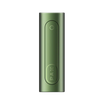
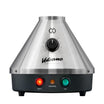
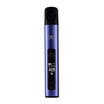

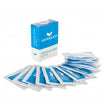
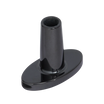
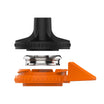
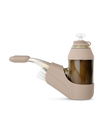
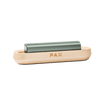
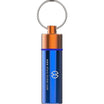
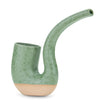
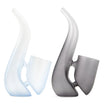

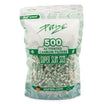

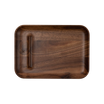



Leave a comment
This site is protected by hCaptcha and the hCaptcha Privacy Policy and Terms of Service apply.